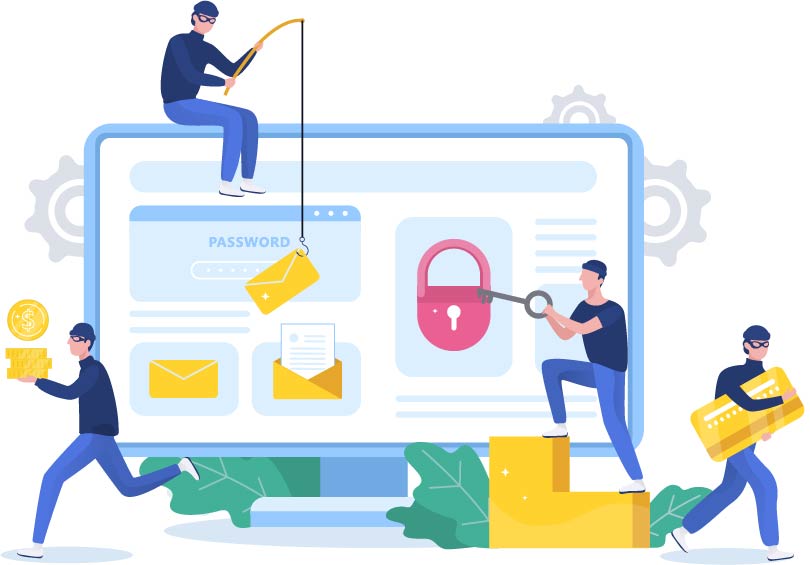Why Having an Address Verification System is Essential For Your Business
You’ve probably heard of an address verification system being used as a fraud prevention tool. In fact, it’s one of the most commonly utilized fraud prevention solutions for eCommerce merchants.
This is for a very good reason—credit card fraud attempts are on the rise. Since 2020, there’s been a 140% increase in credit card fraud attempts and a 52% increase in successful fraud attempts according to a recent study by LexisNexis.
Hardening your defenses with robust fraud-mitigation strategies and solutions is a relentless concern. This so happens to be one of the biggest advantages of using an addressing verification system. But fraud protection isn’t the only benefit that they provide for your business.
An address verification system, or AVS, improves your customer experiences, boosting sales and customer loyalty. It also allows you to streamline operations using automation.
Before we dive into why you need an address verification system, let’s define what an AVS is and explore how they work.
What is an Address Verification System?
Address verification is the process of validating that the billing address given to you by your customer during an online transaction is accurate. An address verification system automates and streamlines this process by cleaning, standardizing, and validating addresses.
AVS cross-references buyer-provided addresses against authoritative address databases like poll books and credit reference records. This prevents fraudulent debit and credit card transactions, which is one of the main use cases of AVS.

A reliable AVS will also clean and standardize addresses, checking and correcting formatting errors, spelling mistakes, missing ZIP codes, etc. Cleaning and standardizing are done in alignment with your current data mart and warehouse rules (you can find a data mart definition here).
Currently, AVS is supported by major credit card companies like Visa, MasterCard, and American Express for cardholders in the U.S., Canada, U.K, Australia, and New Zealand.
How Does an Address Verification System Work?
An address verification system is most often used to authenticate card-not-present (CNP) purchases and prevent CNP fraud. A CNP purchase refers to any purchase in which both the card and the cardholder are not physically present at the point of transaction.
So, transactions made via telephone, mail, online, and fax, are CNP purchases.
But, how exactly does AVS authenticate CNP transactions?
During the checkout process, a customer will provide the details of the card that they want to use to complete the transaction. This includes a billing address. The customer-provided billing address is then compared to the address information on the issuing bank’s database to check whether the addresses fully match, partially match, or fail to match.
From there, the issuing bank will send an AVS code back to the merchant as a guideline for whether they should accept, reject, or investigate the transaction.
Along with address verification, the issuer will also check the card’s CVV code, available funds, and whether or not the card is currently valid.
Why You Need an Address Verification System
You’re probably wondering whether you really need an AVS. To put it simply—yes, you do. But why? Let’s find out.
Streamlined checkout process
Without AVS, your customers will need to manually input their address information. This lengthy process can drive customers on the tip of conversion to abandon their cart completely. The Baymard Institute found that 17% of customers abandoned their cart because the checkout process was too long and/or complicated.
AVS can intelligently capture address inputs and provide customers with auto-completion. As your customer begins to type their address information, AVS can suggest addresses and auto-fill the entire form, significantly speeding up the checkout process and reducing your cart abandonment rate.
Intelligent auto-completion also ensures that you receive the right address every time, which mitigates unnecessary chargebacks.
Accurate delivery times
Customers don’t like hearing that their delivery has been delayed. It’s a headache that harms the customer experience, resulting in lost trust, a damaged brand reputation, and unhappy customers.
If delivery issues are frequent occurrences or aren’t handled efficiently and compassionately by your customer service team, you can even lose loyal customers. According to Salesforce, 48% of customers have switched brands in pursuit of better customer service experiences.
On the flip side, punctual, stress-free delivery experiences improve customer satisfaction and help you nurture one-time buyers into repeat, loyal customers. An address verification system automates data entry and corrects addressing mistakes, preventing failed deliveries.
Lowers shipping costs
Inaccurate addressing increases your volume of address corrections and reroutes. Which, along with causing poor customer experiences, can dramatically increase your shipping costs.
Providers like FedEx and UPS cross-reference the ship-to address you’ve provided with their own database to ensure its existence and format accuracy. If the address doesn’t match, you’ll be charged an address correction fee.
Even if this isn’t the case, the cost of rerouting a package due to an address inaccuracy is high.
This is bad news for your business. The higher the shipping costs are for you, the higher they’ll need to be for your customers if you want to make a profit. And if there’s one thing that customers can’t stand, it’s high shipping costs.
In fact, expensive shipping is the number one reason why customers abandon their carts at checkout. The Baymard Institute found that 48% of shoppers admit that high shipping, taxes, or fees have driven them to discontinue a purchase.
Because address verification systems use automation to validate addresses, you can reduce addressing errors caused by human error and lower your risk of delivery failures. This means that you—and your customers—can enjoy lower shipping fees.
Strengthens data accuracy
When your databases are full of inaccurate, unstandardized data, it reduces business productivity and leads to poor decision-making. You also end up delivering impersonal and unsatisfactory customer experiences, decreasing your conversion rates and losing high-value customers.
This is why tools like a contact management system (CMS) and a customer management system (CRM) are so important. They not only store, organize, and standardize data, but they use real-time automation to ensure that your data is always up-to-date.
In the same breath, an AVS cleans, standardizes, and verifies addresses, helping you secure a foundation of accurate customer data. When your AVS is integrated with your CMS and CRM (and is supported by ETL processes), it allows you to further maintain data quality and accuracy.
Fraud prevention
AVS is an essential component of a multi-layered fraud prevention strategy. One of their main tasks is to authenticate the cardholder’s identity by verifying addresses against an identity database. They then flag suspicious activity in real-time, providing an extra layer of defense against fraud.
As the fraud landscape grows ever more intelligent, consistently implementing stringent fraud protection should be a top priority. Businesses need to proactively defend against and combat fraud attempts as they become more frequent, costly, and successful than ever before.
Here are the figures according to research from LexisNexis:
- The cost of fraud has increased by over 34%.
- Fraud attacks have increased by 140% since 2020.
- On average, retailers encounter 1,740 fraud attempts every month.
- More than 50% of fraud attacks are successful—a 52% increase from the previous year.

A successful fraud attack can have devastating financial, reputational, and even legal business repercussions. With such high stakes, you can’t afford not to invest in fraud protection.
An address verification system should be implemented alongside other cybersecurity and fraud prevention technologies. This includes voice biometrics and multi-factor authentication as well as technologies to prevent high-level fraud attacks, such as DNS security solutions.
Supports international addresses
The more countries you sell to, the more entry points fraudsters have access to. And, the greater the risk of addressing mistakes due to confusion over formatting and spelling.
AVS solutions that support international addresses can mitigate these risks. Not only do they ensure that your address forms support different ZIP codes and phone number formats, but they can provide access to global-wide address databases via international postal services and APIs.
You can also find a person’s address or phone number using Whitepages People Search.

So, to Wrap Up, Does Your Business Need an Address Verification System?
An address verification system is a valuable asset to have in your cybersecurity tech stack. It helps to secure a critical vulnerability, deterring and combating fraudulent activity. But, just like every fraud prevention tool, it isn’t a perfect, standalone solution.
While you certainly need an AVS to prevent credit card fraud, its benefits extend beyond fraud protection. An address verification system is essential for optimizing your customer experiences.
An AVS boosts conversion rates by creating faster, more convenient checkout processes. It also verifies every address inputted by your customers, reducing the volume of delivery delays, lost shipments, and chargebacks.
The more efficient and error-free your customers’ checkout, shipping, and delivery experiences are, the more satisfied they’ll be with their purchases. And in turn, the more likely they are to become repeat, loyal customers.




